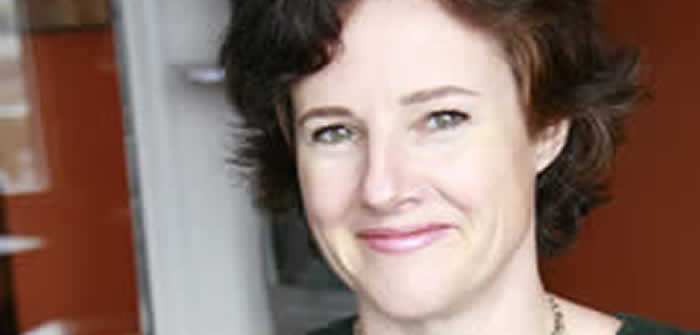Independent producer and International Film Festival Programmer Helen duToit began her career in Vancouver, Canada in the early nineties, working in the art departments of numerous feature films and as production manager on the first 100% 3D computer animated TV series in the world: the groundbreaking ReBoot!
In the mid-90’s Helen relocated to Toronto to serve as Programmer for the Perspective Canada section of the Toronto International Film Festival. During this three year tenure, she also produced six short films, including the Genie Award nominated short film Sshhh….by Scott Smith.
In 2000 she left her post at TIFF to produce William Phillips’ first feature Treed Murray. Hailed by The Toronto Star as one of the “10 Best Films at TIFF,” thereafter the film was nominated for five Genie Awards including Best Picture and Best Director.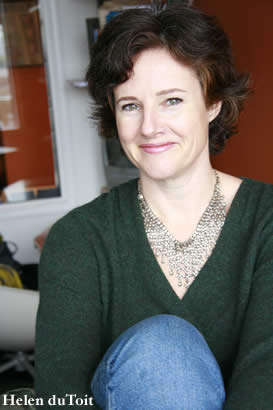
In 2001, Helen produced the feature length dance film The Rings of Saturn by director Moze Mossanen which featured the renowned choreography of Robert Desrosiers. Rings premiered on CBC’s Opening Night and Bravo! in January 2002.
In addition to developing her feature film slate, Helen is Director of Programming for the Palm Springs International Film Festival, producing consultant for Screen Siren Pictures, and Creative Director for VIFF’S Film and TV Forum.
Bijan Tehrani: Please tell us a little bit about yourself and your relationship with the Palm Springs International Film Festival.
Helen du Toit: I originally began working at the film festival in 1990. I recently returned and have worked here for four years. I worked for other film festivals including the Toronto Film Festival, the Edinburgh Festival in Scotland, and in Seattle and Vancouver as well. And then I went into independent film production, and returned to independent film festivals in 2002 or 2003.
Bijan: How have you seen this festival progress over these past few years?
Helen: I can’t remember how many films we programmed in the early nineties, but it was far fewer, probably 60 films or so. The town was much smaller as well, and the international attendance was much lower. It slowed down a bit in the late nineties, and when Daryl MacDonald took over in 2002, the festival really began to take off. We have built a really big audience here. I think we have the second or third largest audience for a film festival in the U.S.
Bijan: The presence of international cinema has been very strong at this festival.
Helen: We have our longstanding tradition of presenting the foreign language Oscar submissions. In addition to that we also focus on international cinema. Sundance has always been known as the American Indie film festival, and so rather than competing with that we are focusing on international cinema. This year, however, we actually have a large showing of American independent cinema, larger than we have ever had before. So we are doing a bit of both.
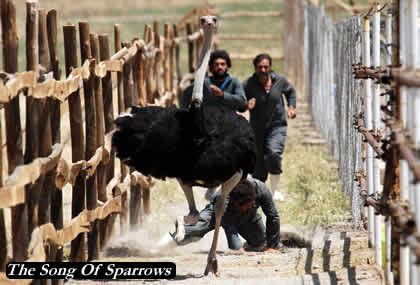 Bijan: Will there be filmmakers from foreign countries attending the festival this year?
Bijan: Will there be filmmakers from foreign countries attending the festival this year?
Helen: Yes. We have got filmmakers coming from all over the world. We have European filmmakers, South American filmmakers, and a Chinese filmmaker.
Bijan: Do you also have seminars in addition to the screenings?
Helen: Yes, we do. We have four separate panel discussions, including one on screenwriting, one on cinematography, and we will be talking to some of the people behind the making of “Midnight Cowboy”.
Bijan: How is the presence of independent cinema at the festival?
Helen: It is entirely independent cinema. We don’t have any studio films. At the black tie gala, we honor films, many of which have been made by studios, and some that have been made by big independent production companies. But the actual festival proper is independent cinema from all over the world.
Bijan: How is the presence of documentary films this year at the festival?
Helen: We have 40 documentaries this year. So 40 out of 208 are documentary films.
Bijan: Do you expect to see more people at the theaters this year for the festival? How many screens do you have? How do people go about attending the festival?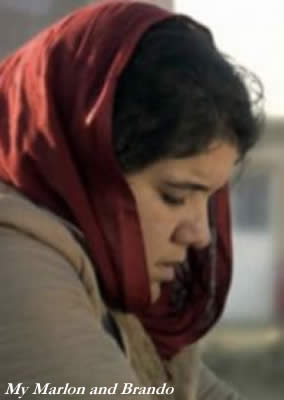
Helen: We have 16 screens. You can come to the Palm Springs Film Festival and see a film for as little at $10, or you can spend as much as $2500 to buy a Benefactor pass. The Benefactor pass gets you into the black tie gala, the opening and closing nights, all of the gala screenings, and reserved seating at any event that you want to attend.
Bijan: As far as the international cinema, do you have any films that we should look for this year? You mentioned that you show the foreign language submissions for the Oscars…
Helen: We have 50 of the 67 foreign language Oscar submissions. In past years we have shown all, or almost all, of the submissions. This year we decided to cap it at 50 because the number of foreign language submissions each year is increasing. So if we kept up with that, our program would be dominated with those. So we selected what we feel are the top films. We would like to reduce this further, but it is hard to select which countries not to include.
Bijan: What do you have planned for the opening night?
Helen: The opening night we are showing “Last Chance Harvey”, staring Dustin Hoffman and Emma Thompson, and we will have the director, Joel Hopkins, flying in for that.
Bijan: What types of awards are given to the films?
Helen: There are three or four awards. There is an award for the best foreign language Oscar submission. We also give a “New Voices/New Visions” award to an exciting future director from around the world, for which twelve films are competing. None of those films can have U.S. distribution, and it must be their U.S. premier. We also have Cinema Without Borders’ Bridging The Borders award for the film that best builds bridges between cultures. Also the John Schlesinger Award is given for best first feature or doc and audience awards.
Bijan: The awards at your festival are something that the audiences take very seriously.
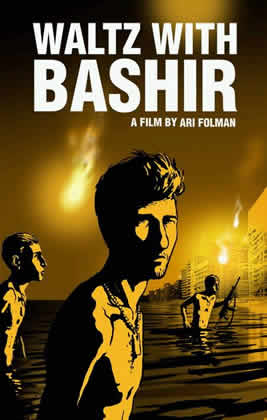 Helen: They do take it very seriously, and they vote after every screening. For distributors who are looking to buy films, our audience awards are an excellent indicator of films that will go on to do very well in the market place.
Helen: They do take it very seriously, and they vote after every screening. For distributors who are looking to buy films, our audience awards are an excellent indicator of films that will go on to do very well in the market place.
Bijan: A film critic who came with me to this festival in the past mentioned how surprised he was that the audience in this town was so interested in international films. He thought that because they were mostly an older crowd, they would not be as interested in the films you were showing. I was surprised myself to see this as well.
Helen: Two things: 70% of the audience comes in from out of town (so the other 30% is local) and they are film buffs. Generally the audience at PSIFF skews older than in a city like Seattle or New York. They are also educated and affluent. Distributors have said that PSIFF audience response to foreign language films is a strong indicator of future box office success.
Bijan: Do you provide Q&A; sessions with the filmmakers after the screenings?
Helen: Absolutely. That’s one of our main goals. We strive to bring in directors or other key creative players. This year we are bringing about 120 guests so almost half the films will have someone there for the Q&A.;
Bijan: What about students? Are there discounts for students?
Helen: This year we are actually doing something special for students. For local University and High School students we are hosting a special day of screenings. If they have a Student I.D., they get in for free. That will take place on Wednesday, the 7th, a day before the festival starts. It is a way for us to present films that are specifically appropriate for students and help build that audience.
Bijan: How do you see the future of this festival?
Helan: The festival is already well attended. So the opportunity for us to bring more industry to the festival is a key to bridge the gap between the audience and the business side of the industry. That is something that we have made a very concentrated effort to do this year. Industry participation has increased dramatically over the last few years, and continues to grow. Hopefully that will continue to enable us to bring in the strongest independent films from around the world.

